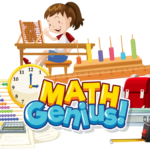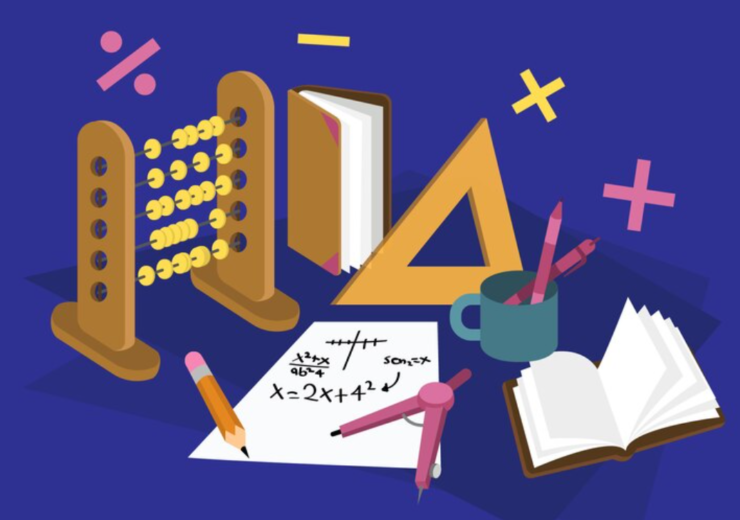Abacus-Based Mental Math Techniques Help Students Excel in STEM Fields

The abacus, a simple yet powerful tool used for centuries to perform arithmetic calculations, has been making a comeback in recent years. While many consider it an outdated relic of the past, there are those who believe that an abacus is an essential tool for teaching mental math skills, especially in STEM (Science, Technology, Engineering, and Mathematics) fields.
Abacus-based mental math techniques can help students excel in STEM fields in several ways. First and foremost, abacus training can help students develop a deep understanding of the principles of arithmetic operations, which are essential to mastering higher-level mathematical concepts. Unlike traditional methods of learning math, which often rely on memorization and rote learning, abacus-based mental math techniques teach students to visualize numbers and manipulate them mentally, thereby developing their mental acuity and reasoning skills.
Abacus-based mental math techniques can also help students develop their spatial awareness and hand-eye coordination. Since abacus calculations involve the use of physical movements to represent numbers, students who learn to use the abacus can develop greater dexterity and hand-eye coordination, which are essential skills in many STEM fields.
Furthermore, abacus-based mental math techniques can help students improve their problem-solving skills. Abacus calculations require students to break down complex problems into smaller, more manageable parts, allowing them to tackle problems one step at a time. This process helps students develop critical thinking skills and enables them to approach problems in a systematic and logical manner.
Read more about – What is Abacus
Abacus Education: The Fun and Engaging Way for Students to Master Mental Math
One of the reasons why abacus education is so effective is that it engages multiple senses. When using an abacus, students can see the numbers, feel the beads move under their fingers, and hear the clicks and clacks of the beads as they move. This multisensory experience can help students develop a deeper understanding of math concepts and improve their memory and recall abilities.
Abacus education can also help students develop important life skills, such as perseverance and problem-solving. When learning to use an abacus, students will encounter challenges and obstacles that they must overcome. By working through these challenges, students can develop a sense of perseverance and determination, which can serve them well in all aspects of life.
Abacus education is also an effective way to improve students’ spatial reasoning and visualization skills. When using an abacus, students must visualize numbers and calculations in their minds, which can improve their spatial reasoning abilities. These skills are important in many STEM fields, including engineering, computer science, and architecture.
From Ancient Times to Modern Classrooms: The Timeless Benefits of Abacus Education
Abacus education is a tried and true method for teaching mental math that has been used for centuries. The abacus, a simple yet powerful tool, has helped countless students develop mental acuity, improve their problem-solving skills, and excel in math and other STEM fields.
The following are some of the timeless benefits of abacus education:
Engages multiple senses: When using an abacus, students can see the numbers, feel the beads move under their fingers, and hear the clicks and clacks of the beads as they move. This multisensory experience can help students develop a deeper understanding of math concepts and improve their ability to remember and recall information.
Develops important life skills: Learning to use an abacus can help students develop perseverance and problem-solving skills. As they work through challenges and obstacles, they can develop a sense of determination and the ability to tackle problems in all aspects of life.
Improves spatial reasoning and visualization skills: Using an abacus requires students to visualize numbers and calculations in their minds, which can improve their spatial reasoning abilities. These skills are important in many STEM fields, including engineering, computer science, and architecture.
Builds self-confidence and self-esteem: As students master new skills and techniques using an abacus, they can feel a sense of accomplishment and pride in their abilities. This can help them develop a positive attitude towards learning and academic achievement.
Provides a strong foundation for future learning: Abacus Maths can lay a strong foundation for future learning in math and other STEM fields. By developing mental acuity and problem-solving skills, students are better equipped to tackle more complex concepts and challenges in the future.
Abacus-based mental math techniques can be learned through abacus classes, which are becoming increasingly popular in many parts of the world and Perth, Australia. Abacus Perth classes provide students with a structured and supportive learning environment, where they can learn and practice the skills needed to perform mental calculations using the abacus.
Semas Abacus classes typically involve a combination of theory and practice, with students learning the basic principles of abacus calculations and then practicing these skills through a series of exercises and drills. The classes are often conducted in small groups, allowing students to receive individual attention and feedback from their teachers.
In conclusion, abacus education is a fun and engaging way for students to master mental math. By engaging multiple senses, making learning fun, developing life skills, improving spatial reasoning, and boosting self-confidence, abacus education can help students excel in math and other STEM fields, as well as in life.





